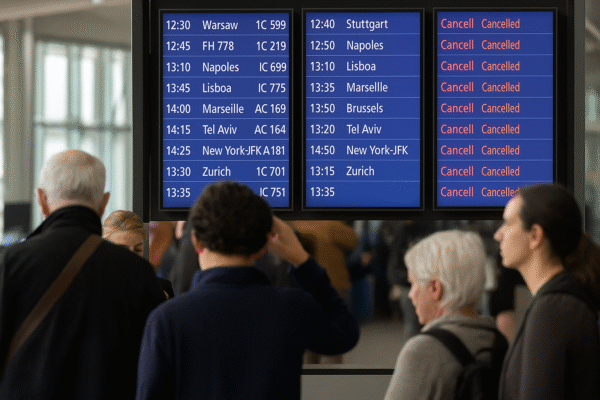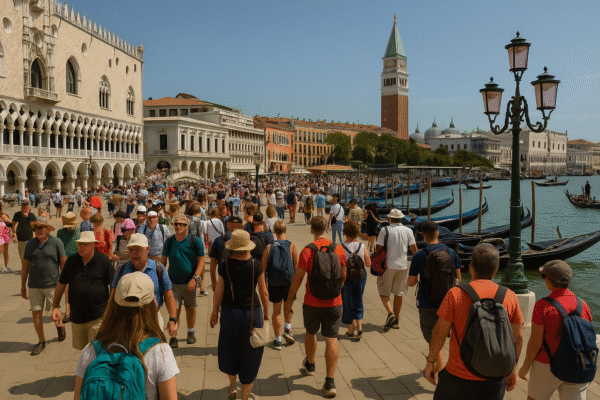WASHINGTON D.C. — Mirroring practices in destinations such as Mexico, Italy, and Spain, the U.S. has begun implementing innovative tourism fees designed to fund conservation, manage overtourism, and enhance infrastructure. Recent measures include a “green fee” in Hawaii aimed at environmental sustainability and a proposed $250 federal “visa integrity fee” under the new “One Big Beautiful Bill.”
Hawaii Leads with First-of-Its-Kind “Green Fee”
Hawaii has become the first U.S. state to introduce a tourism-specific environmental levy. Starting January 1, 2026, the existing Transient Accommodations Tax (TAT) will increase by 0.75%, raising the total rate to 11%, with cruise passengers also subject to an 11% surcharge. The revenue—estimated at $100 million annually—will support climate resilience projects, including beach restoration, wildfire prevention, infrastructure upgrades, and shoreline protection.
Federal “Visa Integrity Fee” Sparks Industry Concern
As part of the Republican-led “One Big Beautiful Bill,” the U.S. government has introduced a non-refundable $250 visa integrity fee for all non-immigrant visas. Designed to strengthen border security and discourage overstays, the fee has generated concern among industry professionals who warn it may deter tourists and businesses, potentially costing the U.S. economy $29 billion in lost tourism revenue.
State and Local Tourism Levies Growing Across the U.S.
Although federal-level tourist taxes are rare in the U.S., state and local authorities have long used hotel and lodging taxes to fund infrastructure and marketing:
- Michigan, in 2025, joined states like Hawaii, Colorado, New Jersey, Iowa, and Tennessee in updating its hotel tax regime to support local tourism operations.
- According to Wikipedia‘s overview of hotel taxes, most U.S. cities and counties—such as Los Angeles, Florida counties, New York City, and many more—already levy bed taxes ranging from 1% to over 15%, with allocations often tied to tourism promotion, infrastructure, and regional development.
Global Context: From Entry Fees to Conservation Levies
Tourist levies are far from new globally:
- Mexico charges fees like VISITAX in Quintana Roo and sizzling environmental taxes in Baja California Sur.
- Canada has introduced accommodation taxes in cities like Toronto and Vancouver for tourism, housing, and event funding.
- Italy, Spain, France, the Netherlands, and Japan use hotel, departure, or site-specific fees to preserve heritage and manage visitor flows.
These fees underscore a larger shift: governments are asking travelers to share responsibility in preserving the destinations they love.
What This Means for Travelers & Tourism Planning
| Impact Area | Details |
|---|---|
| Hawaii | Expect 11–12% lodging tax from 2026; proceeds go to environmental preservation |
| US Entry Costs | Non-visa-free travelers face $250 fee; potential deterrent cited by industry |
| Local Levies | Many U.S. destinations already enforce attraction or hotel taxes for community funding |
| Global Trend | Tourism levies are increasingly accepted as fair and necessary for sustainable growth |
Traveler advice: Verify local tax rates before booking, especially for Hawaii stays, and factor in visa fees where applicable.
A Shift Toward Sustainable Tourism Economics
These policy updates align the U.S. with a global movement advocating for responsible travel financing. By introducing environmentally-focused and security-mandated fees, the country signals a shift toward protecting its tourism heritage and infrastructure.
Hawaii’s green fee shows how destination stewardship can be funded sustainably. Meanwhile, the visa integrity fee raises important conversations around competitiveness and tourist accessibility. Together, these developments reflect an evolving blueprint for 21st-century tourism policy—one that balances economic benefit with cultural and environmental preservation.
For more travel news like this, keep reading Global Travel Wire

















